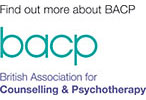- Get in Touch
 07719 626383
07719 626383 hello@thecounsellinglivingroom.co.uk
hello@thecounsellinglivingroom.co.uk
Counselling Agreement
This agreement explains how we’ll work together if you engage me as your counsellor. It lets you know what you can expect from me and what I expect from you in return. It also lets you know how I protect and process the personal data I hold about you.
Read this information carefully and let me know if you need me to clarify anything. When we’ve both signed this agreement it forms a contract between us.
For information about how I look after and use
any information you may give me as a visitor to my website or when you enquire
about my services, see my Privacy Policy.
Ethical practice
I’m a Registered Member of the British
Association for Counselling and Psychotherapy (BACP). My membership number is 046496. I’m
held accountable to BACP’s code of practice and ethics. You can find out more
about BACP on their website: www.bacp.co.uk
Insurance
I have full public liability and professional
indemnity insurance.
Confidentiality
Our conversations in the therapy room are completely confidential. I won’t discuss what we talk about during our work together outside of our sessions.
Exceptionally, where there is a risk of harm or where required by law, I may need to make limited disclosure to a third party. Where possible, I’ll let you know if this happens.
My work is monitored in clinical supervision outside my local area. Supervision is a professional and mandatory requirement. You won’t be identified by name. The information I give my supervisor is confidential and is subject to the same ethical criteria as counselling.
If we bump into each other outside sessions, I won’t proactively greet you. This is to maintain your confidentiality, especially if you are with others. If you acknowledge me openly then I will respond.
Using and protecting your personal data
I won’t use your data for any purpose other than in my professional role as your counsellor. I collect and store the minimum amount of data about you that I need to in order to do my job properly and give you a good standard of service.
These are the personal data I’m likely to hold about you during our work together:-
- Your name and contact details and those of your emergency contact and GP (from the form you fill in during our first session)
- An assessment form I fill in during our second (and possibly subsequent) session(s)
- Minimal notes I make after counselling sessions with you
Your data will be kept safe and protected. I keep hard copy notes in a locked cabinet in my home studio where I work. The building is protected by locks and a burglar alarm. I usually cross-shred hard copy notes as soon as our work together is complete.
I keep electronic notes in a password-protected and encrypted hard drive on my computer in the same room. I keep electronic notes for some time after our work together has finished. This is in case you come back to me for further therapy. I’ll usually delete hard copy notes after a year.
If you contact me by phone or email, I’ll have your contact details in my phone or inbox. I’ll delete this information as soon as our work together is complete.
You have rights in relation to the data I’ve collected about you. For example, you have a right to receive a copy of the data I hold and you have right to ask me to remove data from my records. Find out more about your rights on the ICO website: https://ico.org.uk/your-data-matters/
My business is
registered with the Information Commissioner’s Office (ICO) and complies with all
current data protection legislation, including GDPR.
Getting in touch
You can contact me to arrange or reschedule an appointment by phone, email or using the contact form on my website. The details are at the end of this agreement. Each method is private – no one else will hear or see your message.
If you leave a voice message or email me, I’ll normally get back to you during my working hours. Generally, these are Monday – Friday 9am-5pm. It may take me longer to reply at other times.
Let me know the phone number you’d like me to
use to contact you and whether or not I can leave voice messages – these will
only be of a non-confidential, logistical nature.
Making the
most of counselling
Don’t drink alcohol or take non-prescription drugs before your counselling session.
Counselling is for you only and normally no one else is allowed in the room.
In
accordance with
my legal and ethical framework, I have the right to end
therapy if you’re not abiding by this agreement.
Sessions and fees
Sessions are normally every week at an agreed time. While I’ll try to work around your existing appointments, it’s best if we can try and meet at the agreed time whenever possible.
Your first session will be one hour and will include a brief assessment, which will continue in the following session(s), so I can tailor therapy to your needs.
After the initial session, Couple Counselling sessions last one hour and Individual Counselling sessions last 50 minutes. See my website for latest fees.
You can pay by cash, card, cheque or bank transfer.
Please let me know as soon as you can if you can’t make one of your counselling sessions.
You’ll be charged for sessions that are cancelled with less than 48 hours’ notice.
Indira Chima Registered Member MA,
MBACP
Therapeutic Counsellor
07719 626383
hello@thecounsellinglivingroom.co.uk
www.thecounsellinglivingroom.co.uk

